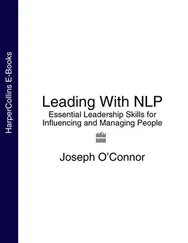Children must experience just for a few brief seconds that you understand their perspective, and then they can absorb your reassuring perspective.
Empathy is that magic switch that opens
children up to receiving reassurance and
guidance.
When a child is upset because he didn’t get what he wanted, many parents are too quick to make him feel better right away. This approach prevents the child from staying in touch with his feelings of loss. When a child feels his loss, he is most receptive to drawing in the empathy he needs.
Remember, it may only take a few seconds. After he receives the empathy, his emotions change. He either moves to a deeper level of negative emotions (from anger to sadness to fear), or he feels better. Not only does the child get what he needs to feel better, but he also experiences that he has the power to let go of negative emotions to feel better.
Giving empathy sometimes only requires a few extra seconds of silent caring and understanding.
When parents are always quick to give solutions so that a child feels better, the child misses the opportunity to learn how to let go of negative emotions and to find the positive feelings deep inside. When parents give solutions, children become dependent on solutions to feel better and don’t learn to accept life’s setbacks with a positive attitude. Our children become too dependent on getting what they want to be happy, rather than learning to be happy when there is love, no matter what the outer circumstances are.
When parents give empathy rather than solutions, children develop the ability to adjust to any negative circumstance or disappointment without having to fix things. By giving children empathy before helping them solve their problem, children develop the ability to let go of negative emotions and to feel better and then to move on to solving the problem. Most adults today still have not developed this ability, because as children they did not get the empathy they needed. When children only get solutions to their problems, they stop going to their parents for help.
What our children need most is silent understanding, caring, and a little expressed validation.
Sometimes all it takes is just to slow down and not try to solve your children’s problems. When they are angry, sad, disappointed, or worried, instead of telling them how to feel better about the situation, the positive-parenting approach is to do nothing but simply feel for five seconds what they are probably feeling. When the child feels disappointed, instead of trying to cheer her up it is better to just let her feel disappointed and feel what she is feeling. Pause for five seconds and simply feel what you think, feel, or sense she is feeling.
Instead of giving a solution, just feel her disappointment along with her and then after five seconds say something simple like, “I know, it is really disappointing.” This gives the child a clear message that disappointment is a part of life.
Nothing dramatically wrong has happened. Very quickly a child’s mood will begin to change. More than anything, children need a clear message that for life to be okay, they don’t need positive things to happen all the time.
When you have a quick solution, it not only minimizes their feelings, but also reinforces a sense of incompetence. If it is so easy for you to solve what is wrong with them, either they feel wrong for being upset, or they feel inadequate for not dealing with the situation the way you suggested in your quick fix. Certainly, a solution is given with love, but, if administered right away, it can have the opposite effect you are intending. Solutions are fine once the child has started to feel better or begins to ask for another way of dealing with the situation.
When your children stop listening to you,
it is clearly because you have been giving
too much advice.
Sometimes even when a child is asking for a solution, he is still not ready to receive one. Although he is asking for a solution, he really needs more empathy. The child might say in an upset tone, “I don’t know what to do.” At this point, most fathers will jump in and offer a solution. Then, quite often, a father will get into a power struggle or argument.
His child will inevitably respond to the “solution” with the resistance of “but.” The “but” meaning, “But that doesn’t apply,” or “But that doesn’t work because . . . ,” or “But you just don’t understand.”
When a child says, “You don’t understand,” this will generally put most fathers on the defensive and, instead of being there for the child, the child will eventually have to be there for the father. The father begins to demand that the child understand why he is right. This is not the right arrangement. The parent is responsible for the child and not the other way around.
When a child says, “You don’t understand,” stop immediately. Bite the bullet. Agree with the child. He is right. At that moment, you are not understanding or feeling what he is feeling. Instead of retracing your steps and explaining that you do understand what he has said or his situation, just stop and agree. Say something like this, “You’re right, I don’t understand. Tell me again.” This time, back off from giving solutions and focus on giving empathy.
These are a few examples of the common solutions mom or dad might give and alternative statements to communicate empathy.
Giving a Solution: Don’t cry.
Empathizing: Pause five seconds then say: I know . . . it’s disappointing.
Giving a Solution: Don’t worry.
Empathizing: Pause five seconds, then say: It is difficult. I know you are worried.
Giving a Solution: It will be okay tomorrow.
Empathizing: Pause five seconds, then say: It is hard. I know you’re disappointed.
Giving a Solution: It’s not such a big deal.
Empathizing: Pause five seconds, then say: I know you feel hurt. Let me give you a hug.
Giving a Solution: Hey, you can’t win them all.
Empathizing: Pause five seconds, then say: I know you’re sad. I would be sad, too.
Giving a Solution: Hey, come on . . . that’s life.
Empathizing: Pause five seconds, then say: You have a right to be angry. I would be angry, too.
Giving a Solution: It could be a lot worse.
Empathizing: Pause five seconds, then say: I can see you’re afraid. I would be afraid, too.
Giving a Solution: You’ll do fine . . . everything will be all right.
Empathizing: Pause five seconds, then say: I know you are scared. It’s scary.
Giving a Solution: It’s not that important anyway.
Empathizing: Pause five seconds, then say: It’s okay to be jealous. I would feel jealous, too.
Giving a Solution: You’ll get another chance.
Empathizing: Pause five seconds, then say: If that happened to me, I would be disappointed, too.
WHEN CHILDREN RESIST EMPATHY
When giving empathy messages, a child may resist and correct the parent by saying, “That is not what I am feeling” and then proceed to talk about how she is feeling. Even if you believe you were right, it is important not to interrupt her flow to defend your observation. The point is not to be right, but to help your child express her feelings.
Читать дальше












